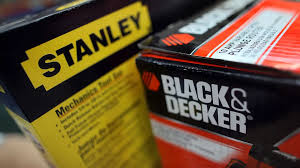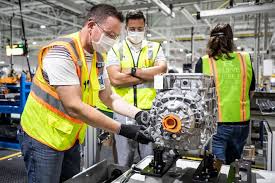
Stanley Black & Decker, the world’s largest toolmaker, is bracing for an $800 million tariff impact this year — and it plans to raise prices again to help absorb the cost.
The Connecticut-based company, known for household tool brands like DeWalt and Craftsman, already lifted prices by high single digits in April across U.S. retailers. Now, it’s preparing a “more modest” price increase in the fourth quarter, according to Chief Operating Officer Christopher Nelson.

“We plan to leverage supply chain moves and targeted pricing actions to improve our gross margin in the coming quarters,” CEO Donald Allan said on the firm’s July 29 earnings call.
Stanley Black & Decker had initially warned of tariff costs reaching as high as $1.7 billion, but that estimate has come down thanks to operational changes and ongoing trade negotiations. Still, the remaining impact is significant, with the company forecasting a negative earnings per share hit of 65 cents for 2025 — about 10 cents less than its Q1 projection.
To help counter rising costs, Stanley Black & Decker is pressing ahead with its multi-year cost-cutting plan, which aims to deliver $2 billion in total savings by the end of next year. The program already generated $150 million in savings in Q2 alone.
The company is also reworking its global supply chain to limit exposure to tariffs and cut dependence on Chinese manufacturing. Nelson said Stanley Black & Decker expects to reduce production in China to less than 5% by the end of 2026, while strengthening its North American footprint to boost supply chain resilience and shorten delivery times.
“Our simplified and more nimble supply chain is enabling us to deliver improved profitability, better service for our customers and end users and sustainable market share gains,” Nelson told investors.

During the second quarter, the toolmaker posted $3.9 billion in revenue — a 2% drop year-over-year — citing a weaker outdoor buying season and tariff-related shipment delays. Volume fell roughly 4% but was partially offset by a 1% price increase and 1% currency benefit.
The company’s core tools and outdoor products division accounts for about 90% of total revenue. Its engineered fastening business, which sells components like nuts and bolts to manufacturers, recorded $484 million in Q2 sales — down 2% from the prior year. Demand from aerospace helped, but declines in the automotive and industrial sectors dragged results lower.
Gross margin came in at 27% for the quarter, down 140 basis points compared to last year. Even so, net earnings rebounded to $101.9 million, a swing from a $19.2 million loss in Q2 2024.
“Overall, a very solid quarter in a turbulent environment,” Allan said — his last earnings call as CEO before transitioning to executive chairman in October. Nelson, the incoming CEO, inherits a tricky balancing act as the company tackles ongoing tariff turbulence and aims for adjusted gross margins of 35% or higher.
Despite price hikes in the spring, Nelson said Stanley Black & Decker hasn’t seen a “noticeable shift in buying trends,” suggesting that demand remains resilient even as costs rise.
The company did not issue formal Q3 guidance but said it will keep working closely with U.S. trade officials to address tariff challenges and find the best ways to deliver affordable products to its customers.
With tariffs staying volatile and global supply chains in flux, the tool giant’s pricing power and cost-cutting execution will be crucial as it tries to nail down profits and stay ahead of the curve.
Originally reported by Nathan Owens in Construction Dive.